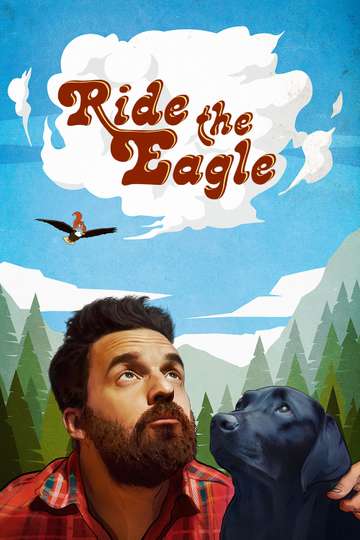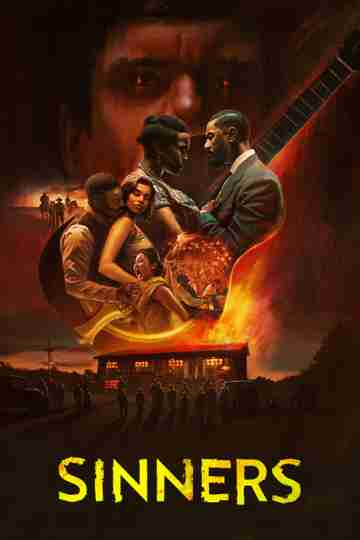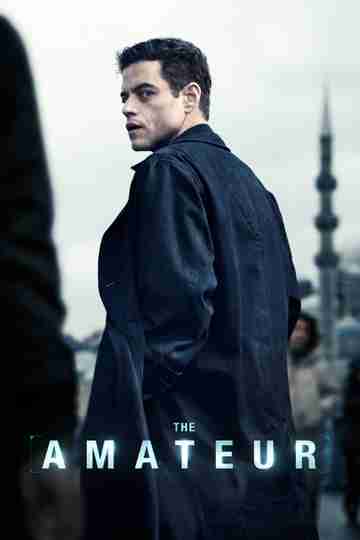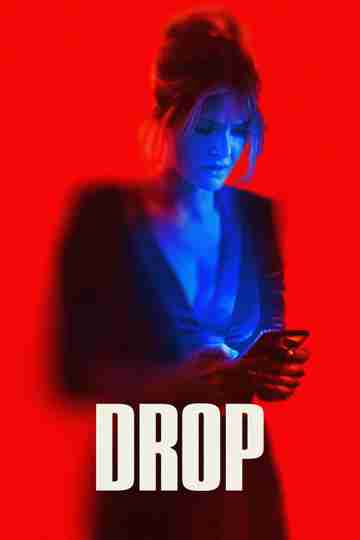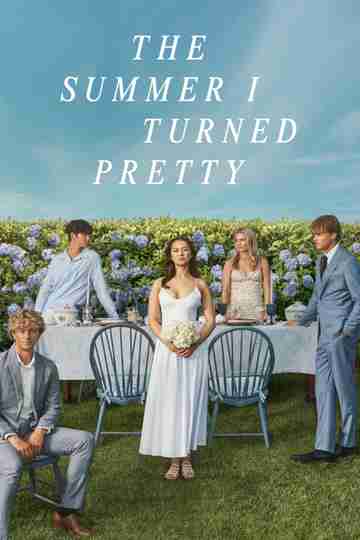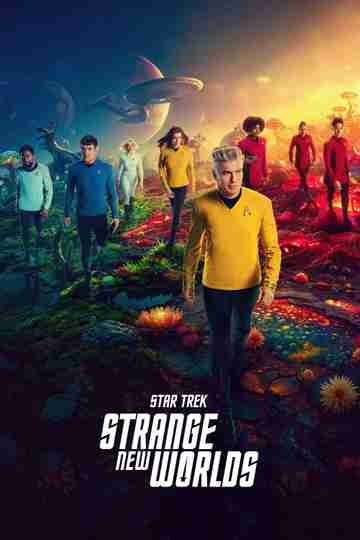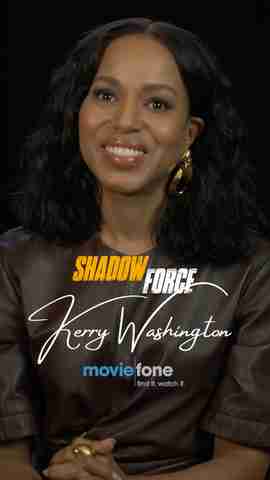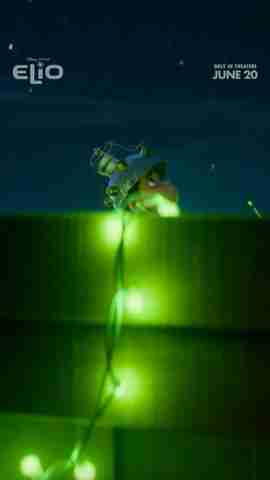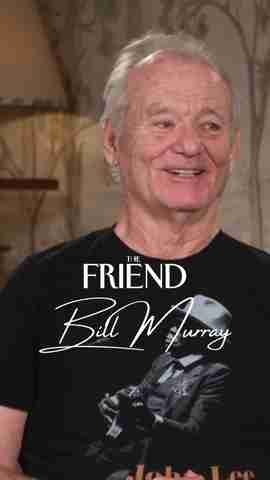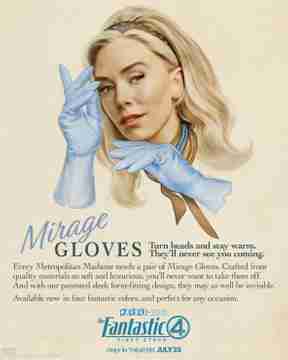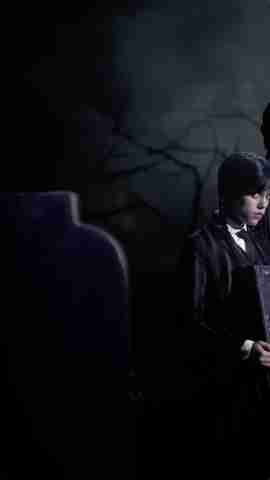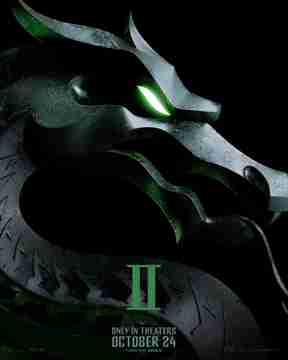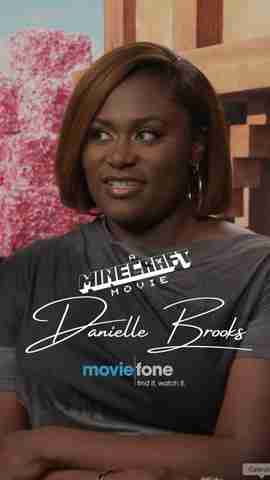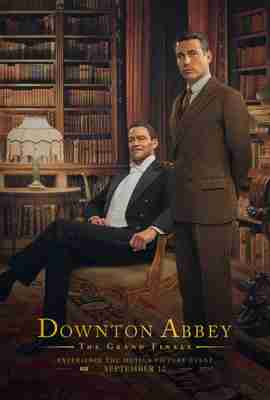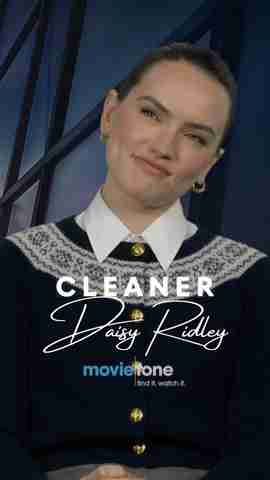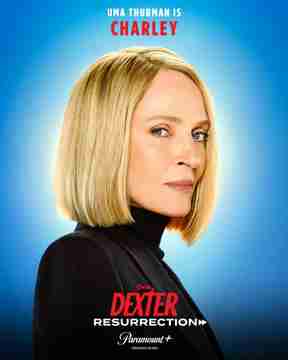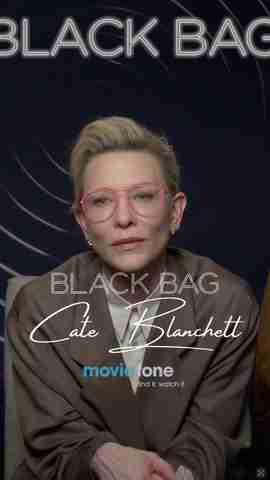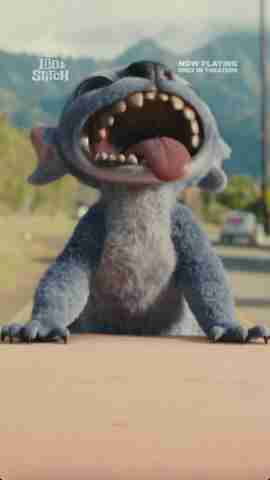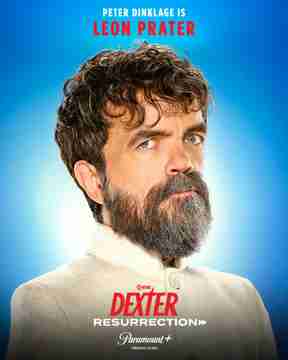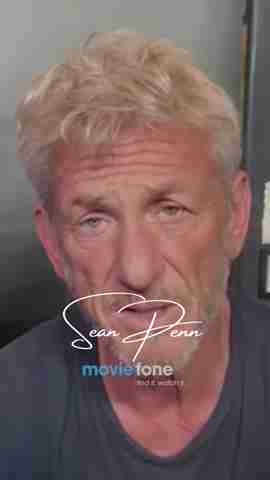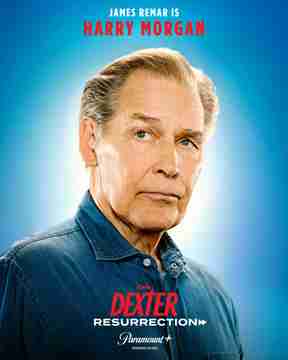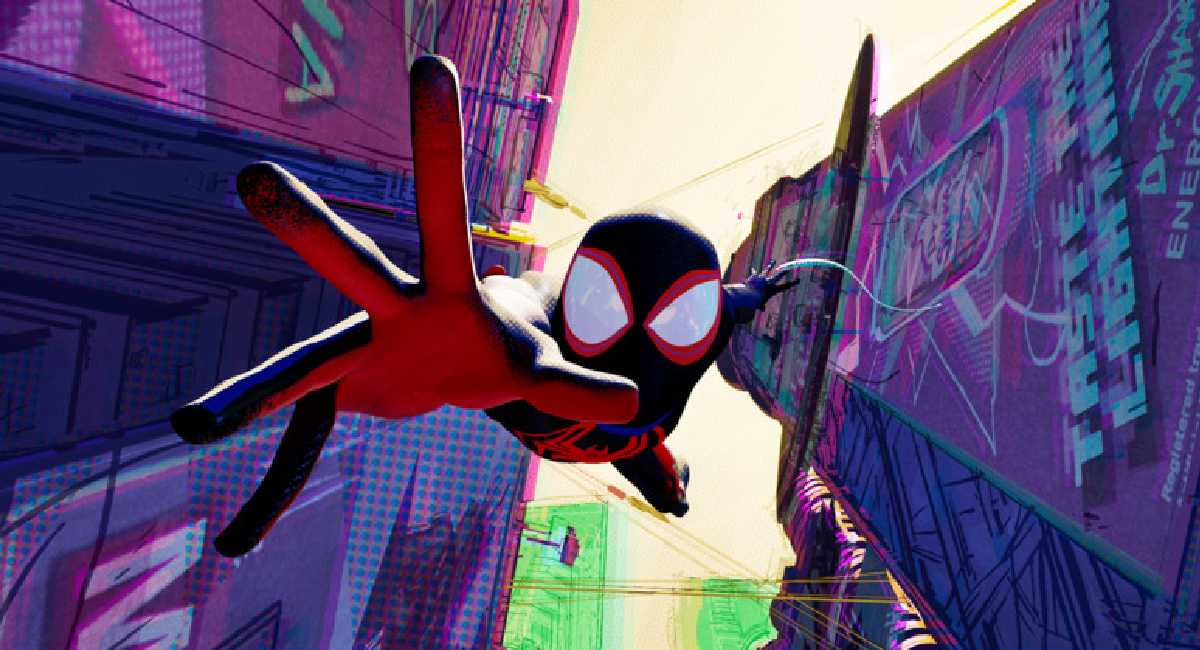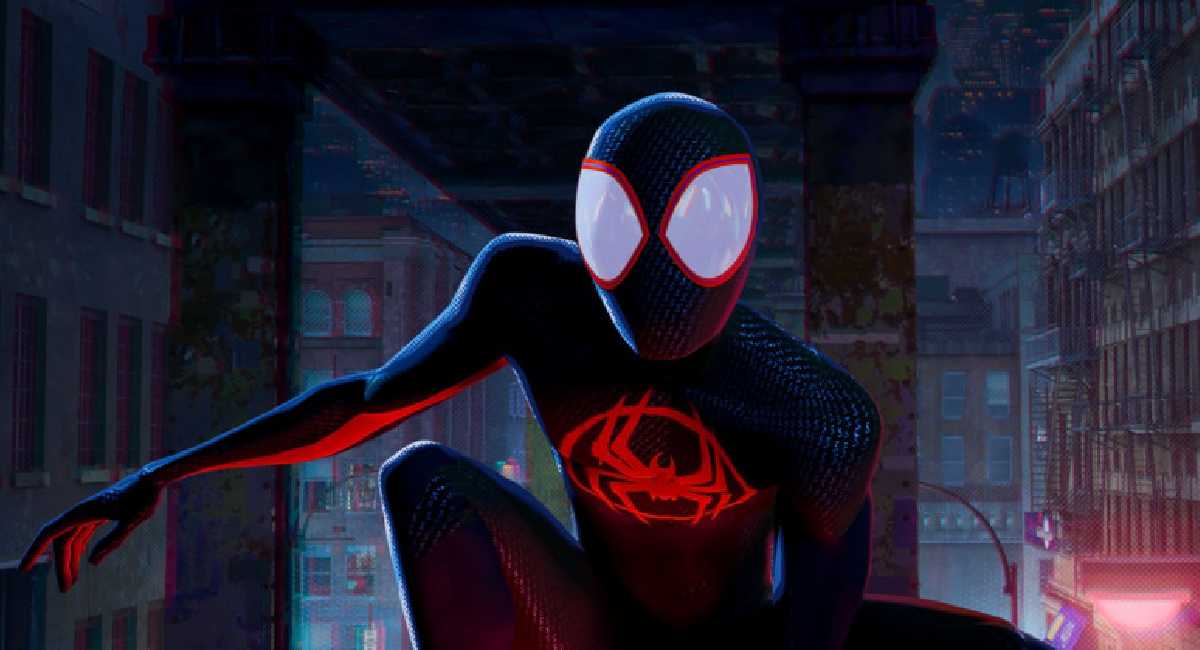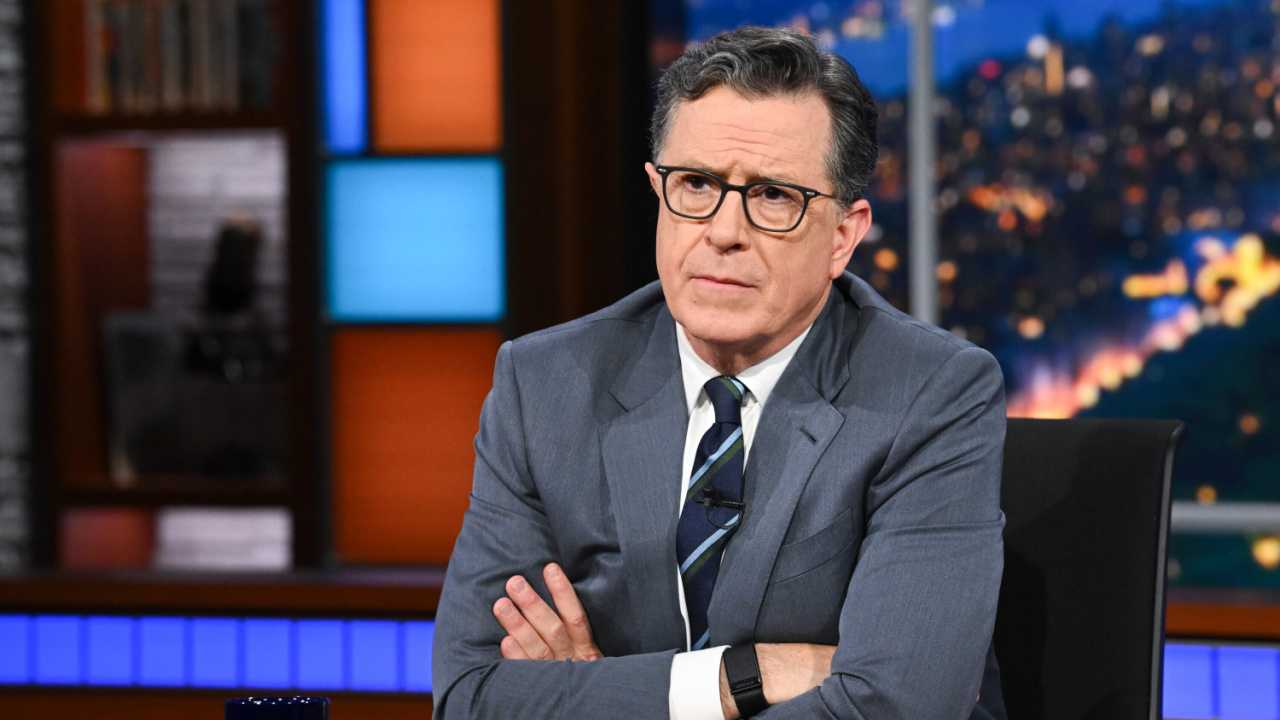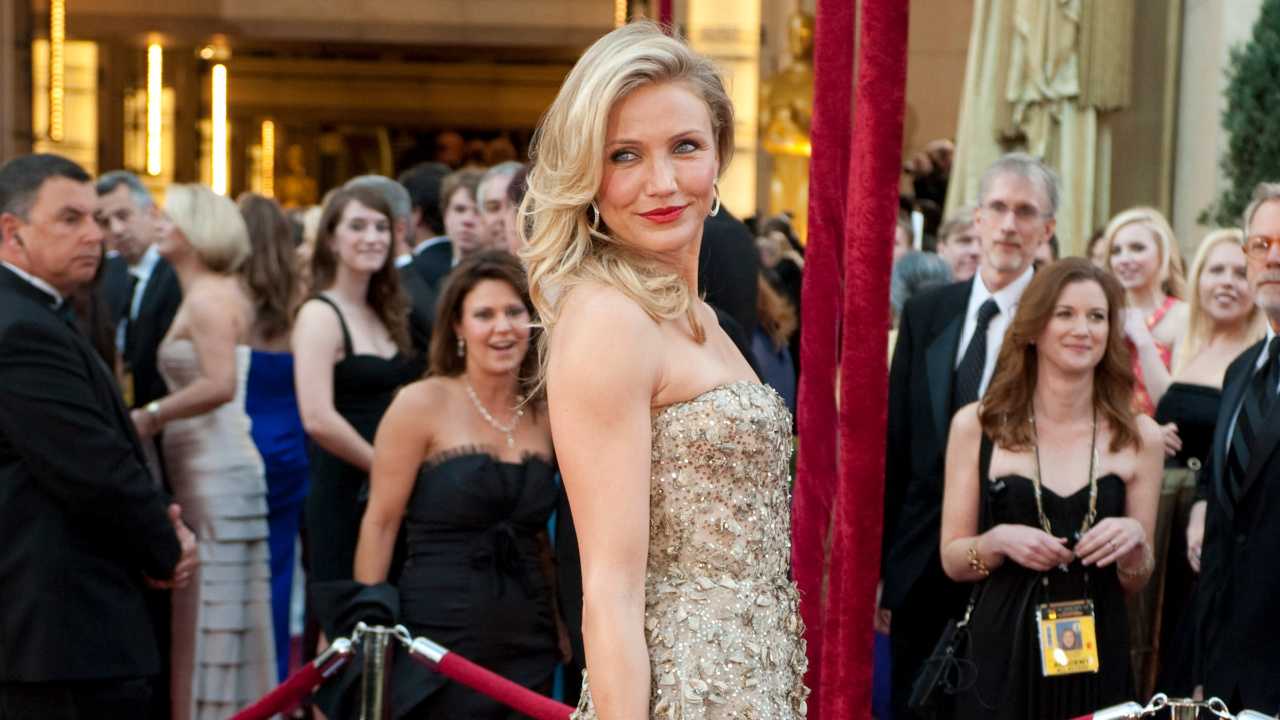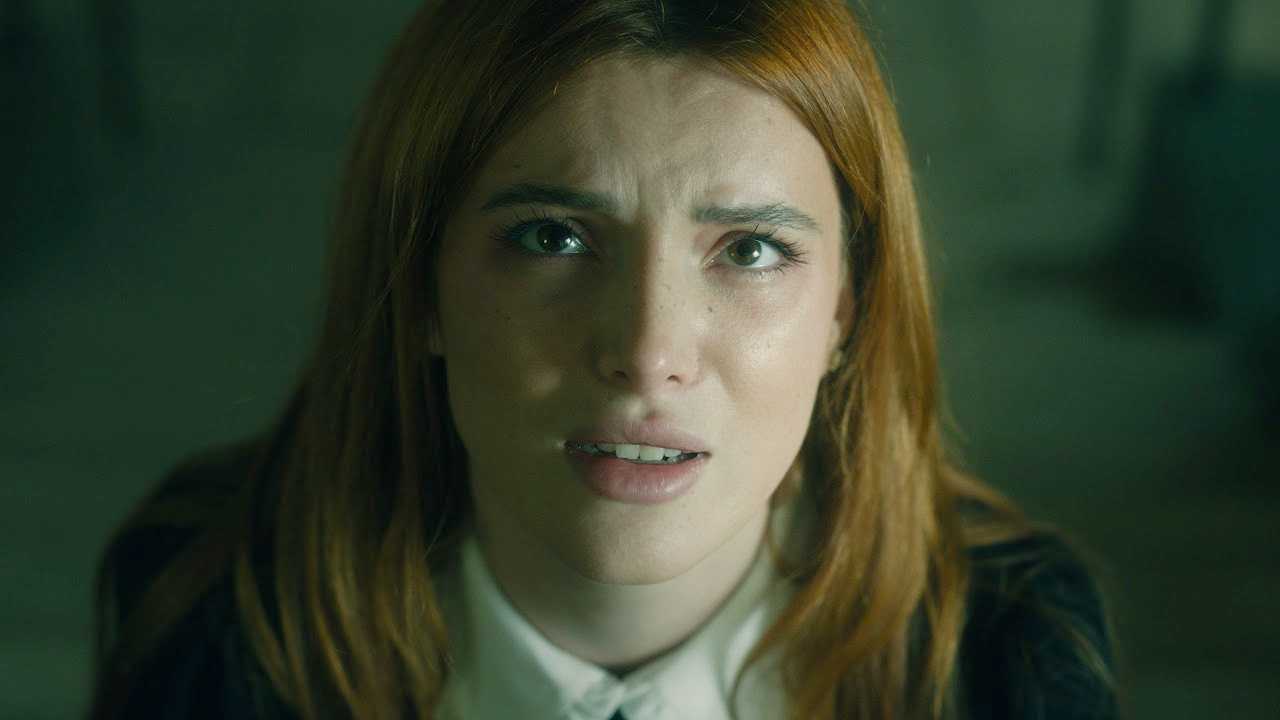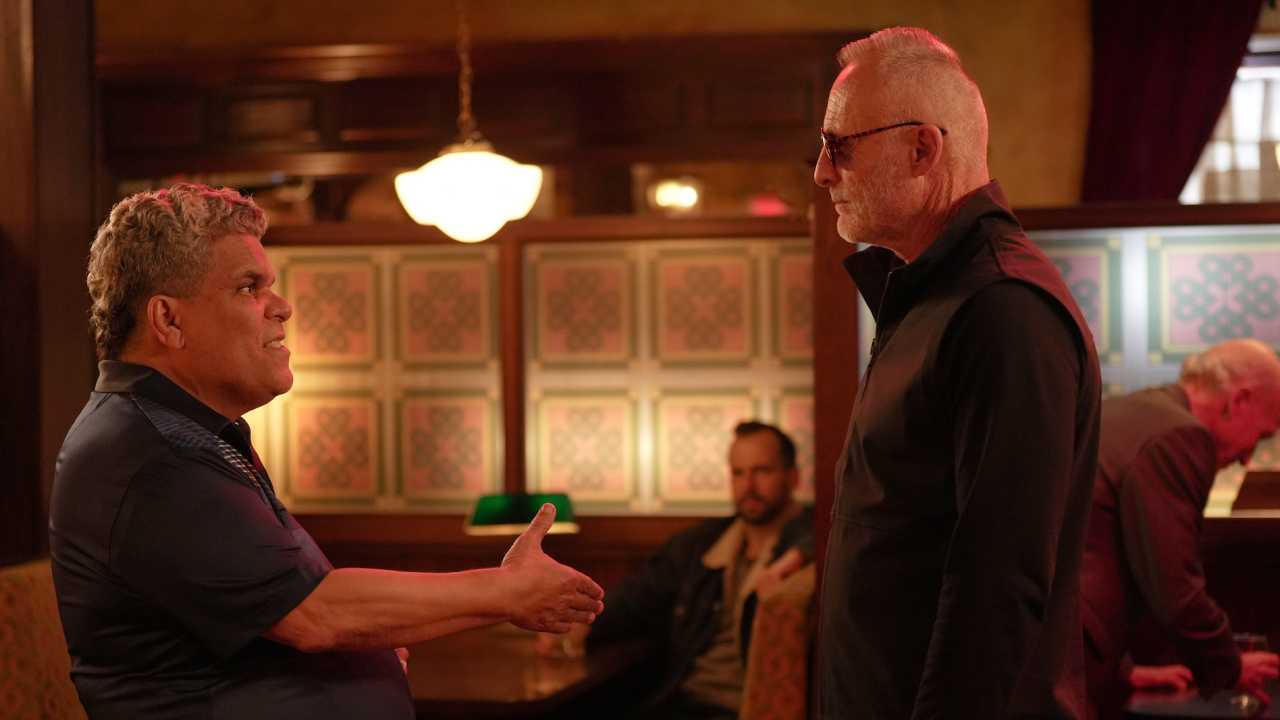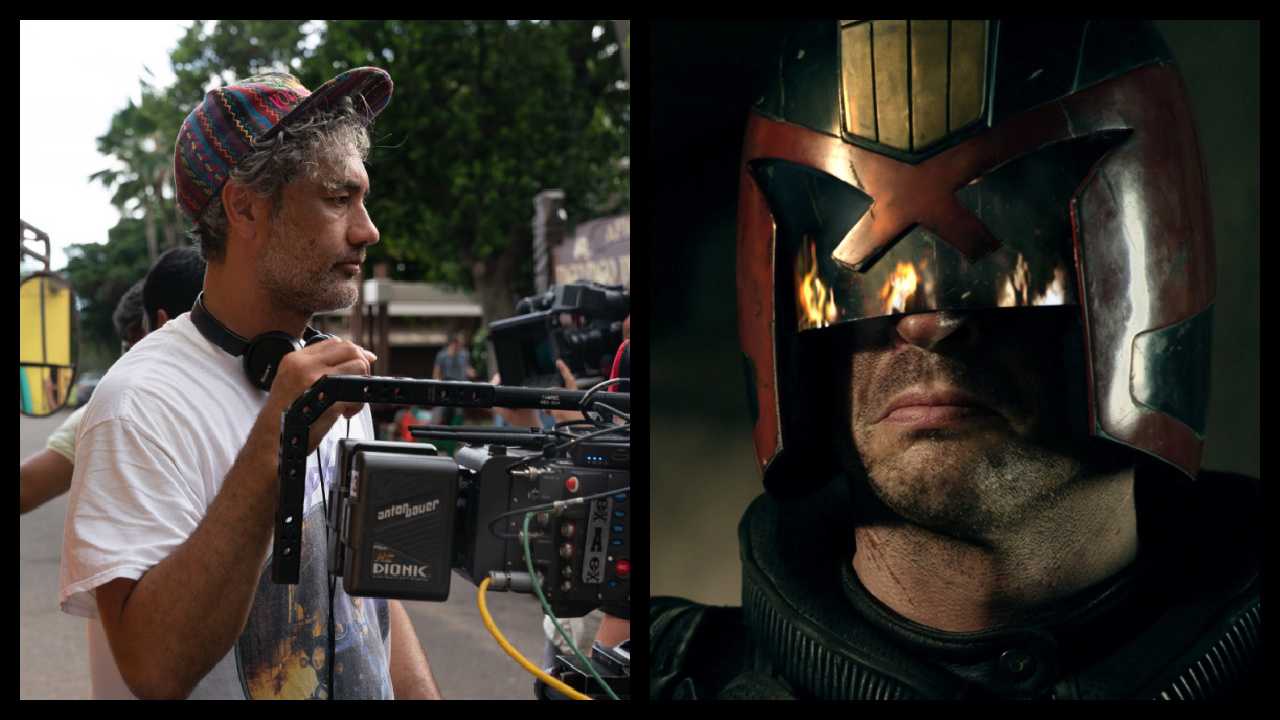‘Ride the Eagle’ Star/Co-writer Jake Johnson and Director/Co-writer Trent O’Donnell Discuss Their New Movie
The star and the director talk about making a pandemic movie that doesn’t feel like a pandemic movie, and working with Susan Sarandon and J.K. Simmons.
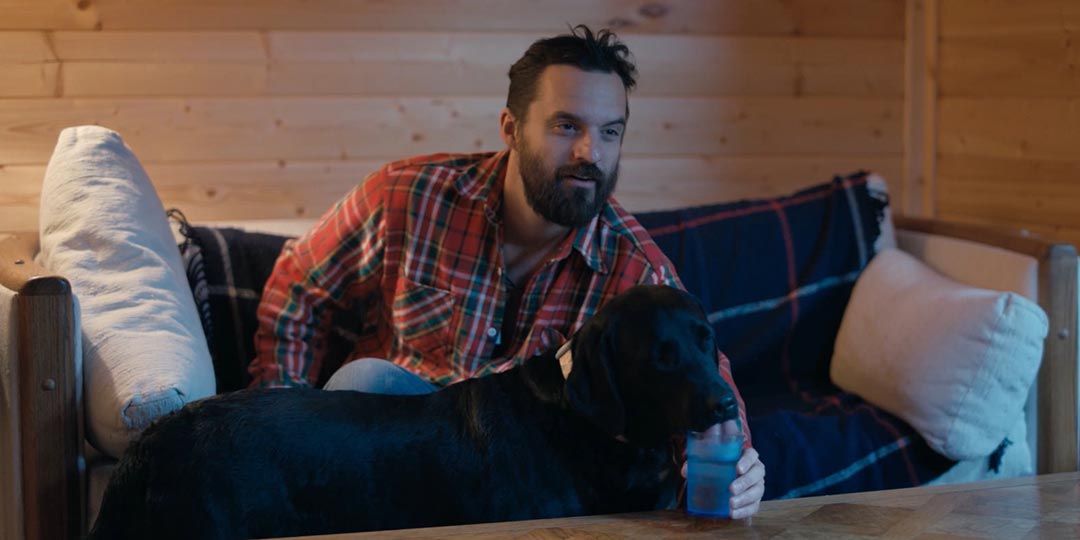
Jake Johnson and his dog Nora in 'Ride the Eagle'
Jake Johnson and Trent O’Donnell have cowritten a movie about a man named Leif, whose long-estranged mother has left him her mountain cabin in a “conditional” will. The movie is called ‘Ride the Eagle,’ and Johnson plays Leif, O’Donnell directed, and the supporting cast includes Susan Sarandon (as Leif’s mother), J.K. Simmons (as her boyfriend), and D’Arcy Carden as a former girlfriend of Lief’s. Johnson and O’Donnell took some time to talk about their new movie, touching on their music choices, the supporting cast, and shooting a movie during the pandemic.
First, Jake Johnson talks about the inspiration for the movie.
Moviefone: Where did the inspiration for this story come from?
Johnson: The kernel of the idea of this one came... We were in the throes of the pandemic. This was really early on, and we were really missing everybody. And we were just missing people, but we didn't want to do a movie about a pandemic. And we didn't want to do a movie that was on the nose of what was happening. That like we were far from people, and people felt very disconnected. And if you watch the news or you get on social media, everything was just about how much we hate each other and how it's unforgivable. And we'll never see eye to eye again. Everything is now different forever.
And so we wanted to make a movie about that sentiment without being about that sentiment. And as we got to talking, we went away from politics, and away from what was happening, and away from 2020 and into family dynamics. And so then it came to a mother and a son and we wanted to make sure the mother was not necessarily the bad guy. So that's why we had, she was in an organization and just believed something different than the son and had been, trying to be cool for 20 years. So that they were both at this point, grownups and they were both wrong. So that was the kind of-
MF: Well that's one of the things I really liked about this, is you capture that idea of going go past the parent-kid relationship and you get into a space where one of them is now their own person and may not choose to make peace and says, "Yeah, too much water under the bridge. I'm done."
Johnson: Yeah. Well, in my own life, my father and I, he didn't raise me. He wasn't around when I was a kid. And in my early twenties when he was around a lot and really sobered up, and was really making an effort, I punished him for a lot of years. And then there's an age where you finally go, "I think I'm the prick. I'm not 13, I have a bad back because I'm getting older. So what am I doing punishing this even older human." And it was about a decade ago or so, probably longer, but I forgave him and I'm so glad I did, because we became such good buds.
And so this movie it's really nothing about him and I, and it's not our relationship. But one of the things I wanted to put in with the Honey character, the Susan Sarandon character, is I wanted my character to really realize in watching these tapes, how much he missed out, because he would have liked her personality. She was a fun mom. She was a lot like him. And if they could have got past the bullshit, they really could have had a lot of fun together.
MF: What was your writing process like? Would you write parts of it and then give it to Trent? How did you guys work together?
Johnson: So the original seed of the idea was going to be very small. It was originally going to be... That dog Nora in the movie is... I had got her during the pandemic. She's a retired guide dog. So she had had person in Oregon and it just didn't work out for her. I think the woman got sick and no longer needed her. But when Nora went back to the program, she just had some issues. So she wasn't able to be a guide dog anymore, but she is so insanely smart and I've never had a dog that's almost like a person, but also totally like a dog. And so the original idea of the movie was going to be me and this dog up at the cabin doing my mother's list. And the list was going to be in a journal.
And as we started building it together, I would write a soft draft, send it to Trent, and then just sitting writing I realized if I was watching this movie, I would get bored. And so if I'm bored, I think the people watching are going to be bored, and then I went, "I would like to see the mom." And then all of a sudden it became videos. And then the contact with somebody you love, well, I don't want just one call. I want to see what they like about each other. And then to learn more about her, we realized we need a character who tells him how great his mother was. So that all of a sudden became the ex-boyfriend. And then as we built, and built, and built, the movie just kept getting bigger, and bigger, and bigger.
MF: I love Nora. She is an absolute sweetheart. I love that you've cast your dog in the movie. That's terrific. So is she totally a movie snob now?
Johnson: Yeah, it's funny. Well, we had two dogs. We had that two kind of pandemic dogs and the dynamic in our house is just terrible now because Nora is a huge star and our other dog is a rescue mutt who's just being treated like trash. Nora won't eat dog food anymore. It's just sushi. She only wants green, M&M's and our other dog is just getting disgusting old dog food.
MF: You've got such a great cast here and it's hard to pick one that specifically sticks out. But I do definitely have to mention that moment that J.K. Simmons is yelling at you and then suddenly he's switches gears and says, "Oh, you're Leif!"
Johnson: He's so good.
MF: What's that like, watching him make that switch on set, in the moment?
Johnson: Funny you say that. So he kind of, I mean, honestly, when you say everybody, it's not a BS thing to say everybody killed it. The guy Luis Fernandez-Gil who plays Gorka was making us laugh all of a sudden about a cockroach. This was not a heavily improvised movie. This was a scripted movie. Besides his stuff. All of that, he was just saying in the moment and everything about it was we were all like, "What the hell is this man talking about?" But the J.K. scene was so important to us in terms of the script, because it's essential. And I thought we were going to need to work it with him. I thought it was going to be a long day of shooting. His first take... We did a bunch of takes obviously, because we had the crew for it. His first take was perfect. His second take was perfect. His third take was perfect. Didn't take anything. He didn't improvise. He didn't change dialogue. He's just a top actor and top actors make medium writing work.
MF: What's going through your head when you're watching an actor come in and just nail it on that first take?
Johnson: You know what, it's truly, it's funny you bring this up, because as I wrote it with Trent, but I was acting in it. Once, I've done this before, where I write something, I act in it. When I start acting, I can disconnect from the writing because you have to make it come to life. Besides that scene, the first take, the reason we had to go again right away is because we were in a two-shot and I was really bad because I was watching him. I became, and it's happened to me a couple of times in my career where I'm in a scene with somebody, and I just become the first audience member, because he just brought it to life. The world changed.
I just had a thing where I did an episode of the anthology series War with Cynthia Enloe. And we did a take once and it was so good, so quickly on her side, that I had to remind myself that I'm in it with her and I'm not watching. And J.K. had that, where I just thought like, "Oh, that's Carl, and Carl loves Honey. And this is real and this is all happened." And then I went like, "Easy, asshole. You're in the scene."
MF: You have all these great scenes with D'Arcy where you're on the phone. What are the mechanics of shooting that? How do you do that and get the reaction with somebody else? You have someone else reading the line?
Johnson: We do. So those were really tricky because we rehearsed a lot together so that we could find each other's rhythm, but we both did our ends alone. So I was reading my stuff with Trent, and she was reading her stuff with Trent. Because I did not go to... Because of the pandemic we wanted to limit people. So that was all, we rehearsed a ton, we found each other's rhythms, so that we knew the chemistry. Then we just had to remember what the other one would say, because we didn't have playback. We couldn't afford it. So I would remember where she would laugh and try to find that feeling of where she was warm, where she was colder. And so those were truly tricky scenes to do. We made D'Arcy a producer on this after working with her. And it was because she worked for this so much in rehearsals and gave so much of her time and her brain power. We couldn't have done it if she was just there to put it in. The things wouldn't have worked and we would have had to rewrite them and figure something else out.
MF: And of course I have to bring up Susan Sarandon, who is just spectacular in this. Even just talking to a video camera. And one of my questions is, what's it like when you get the news that, "Oh yes, you've booked Susan Sarandon for your movie?"
Johnson: Well, we sent her the script. Shani Rosenzweig, her agent, read the thing and said, "I think Susan would be good for this." And we kind of laughed it off. And we were like, "Sure. Of course she would, Marlon Brando would be good for Leif too. Be cool." But what happened with Susan, and there's a reason why certain people are great. And Susan called and we had a conversation, Susan, Trent and I, we had a bunch of meetings on the phone, where she asked really big questions about Honey. And it was questions where we needed to have the answers so that she knew how to play the character. And a lot of it was, she wanted to make sure that Honey headed with a three-dimensional character and wasn't just a tool in order to make the story work.
And so as we would talk it out with her, we realized very quickly she doesn't need, after this, much direction. Now she owns the character. So when she owned the character, we made a few tweaks around her, but we knew she's great. She's got her teeth in this one. And she did. Everything she did. The movie obviously doesn't work without her. Even though she shot all her stuff in a day, she's the heart of the movie. She's the mom. She's the engine of the entire movie. Now it's a weird thing because she's talking to a camera and she's in the TV in the movie. So you feel slightly distanced from her. But the entire longing of that relationship, and if the movie works for people, it works because they're sad she's dead. And the only reason that they're sad she's dead, is because they believe she's real.
MF: I love that you brought up that you shot this in the pandemic, because it's somewhat of the stealth version of the pandemic movie. Because unless you really think about it, you're not realizing that, "Oh, almost every shot in this is someone flying solo."
Johnson: Yeah. The trick for us on that was, we had a lot of conversations with Judd Overton, our DP too. We did not want it to feel like the pandemic. I wasn't excited about movies or TV when they started. People talking about it, where it was. They shot everything in one room or it was a story about people. For me, I was like, "Man, I want to escape this. I don't want the characters talking about it. I don't want anything science fiction about, there's a germ killing everybody. I want to get as far from this as possible." So our idea was, what can we do, and how do we do it? So when you look back, you go "For sure they made this in a pandemic." But while you're watching it, or if somebody watches it in five years, I would like them not to think of the pandemic when they watch it.
Because originally we were just going to do the mom with letters and voiceover. So that that voiceover voice could be the equivalent of in a horror, that animation voice, where it feels like a character. But then we thought, "Well, we don't want that. We want to see it." But what we didn't want to do, is do phones. So then we were like, "So how do you do it if it's not a phone, we don't want phones." So because everybody was dealing with Zoom, FaceTimes. They're like, "That feels like the pandemic." So it was a lot of stuff like that.
MF: Whose idea was the Modesto Duran track that you're playing the congas to?
Johnson: I think that would be our music supervisor, Chris Swanson. That whole sequence was one of our hardest to find musically, because what we really wanted was Leif playing the bongos and then you get inside his imagination. So we tried a lot of tracks in post on that one. And a lot of them didn't work or they felt too big.
MF: It's a perfect track.
Johnson: It's really funny you bring that sequence up because when we wrote it, we loved the sequence. We understood that we wanted it. In making this movie, which is truly an independent movie, we didn't have a big budget. Trent, Joe and I were paying for it. So what it really required when we started going into post, was the band. And a band was needed to score it based off my drumming. And then eventually the band would have to play it, but we were in the midst of the pandemic and there was no option for a band. And so we then had to magically find a song. So we had cut that out and that was out of the movie for a long time, until that song came back and then we could restructure it and bring it back in, because that sequence doesn't work without that song.
MF: Well, and I imagine there's also budget considerations with clearing it too.
Johnson: You know the music wasn't as bad as you would think it was. And I think it was because people knew what this movie was.
Director Trent O’Donnell talks about shooting the indie movie during the pandemic.
Moviefone: What was the inspiration for writing this with Jake?
Trent O'Donnell: It actually came from really us being alone during the pandemic. And honestly it came for us deciding that we wanted to make something together. We wanted to hang out, we wanted to film something. We constantly have ideas and send ideas back and forth to each other. And so we sort of got together, we looked at the stuff we had and went, "What is achievable? What is something that we can actually do? And what is something that we'll have momentum." Because so often these projects and particularly if you're going through the traditional way of writing the film, sending it, someone will read it in three months and then get back to you and all that sort of stuff. We really just sat down and went, "Okay, what can we do that will be a film that we'll be proud of that we think is good, but that we can actually achieve during this time." Because initially it started with, it was going to be me doing camera and then us both doing sound.
And we would try to figure out some kind of cool little weird art house film. And then as the idea grew, and I guess the kernel of the idea was as much from sort of an amalgamation of our shared family histories and extended families. And some of the things we've seen go on there, which doesn't feel like a particular unique story. I think a lot of families have these kind of falling out and little gripes and grudges, but that was kind of the initial jumping off point that we wanted to do something around that and a story of sort of forgiveness, but not a heavy handed sort of moral kind of way. So, once we had that idea, we very much were like, "All right, how much do we want to spend? And what can we do for that money?"
MF: When I talked to Jake he pointed out that you guys shot this during the pandemic. And that hadn't really clicked to me while I was watching it. But it's not a movie about the pandemic. It's not about being on lockdown. And as you guys were writing it, were you thinking about how do you keep this from being overtly a pandemic filmed movie?
O'Donnell: Yeah. I mean, we wanted it to not feel anything like a pandemic movie. We didn't want it to be timestamped with the pandemic. And also we were living it so hard at the time that it did feel like, "Let's get away and pretend that this is not on for a little bit." So, it made sense for us that the story was about this guy sort of getting away in this place that he doesn't know and he's by himself. And we have these interactions with different people, but we certainly kept it on the limited side, I guess.
But yeah, I think initially we had one idea of he could be at a concert or something like that. And then we're like, "We're not shooting a concert scene with 10 people in the audience." So, we definitely leaned into the stuff where it wouldn't feel like a compromise, where it could feel kind of organic that you wouldn't have people everywhere and where we actually shot a lot of the film, up on that sort of northern edge of Yosemite, there's not many people up there. So, it felt real to us.
MF: There's a fair amount of scenes where Jake's in the water. Was it cold up there? And you guys have a long friendship, so are gleefully making him get in the cold water?
O'Donnell: It was pretty great. Actually, that's a part of the experience that I loved because I'm used to working with Jake on sets where Jake's getting paid way too much money and he's got his trailer and as soon as we wrap he's off the lot. He had to be the one, take his shirt off, getting in the water. And then even at the end of the day, when we'd wrap, he would have to carry C stands and lighting equipment and then we'd go back and we'd all cook together as well. It was kind of like we were on camp. So, it was definitely fun to make him go in the water and just walk four miles a day.
MF: You've got such a great supporting cast in here. What was that casting process like for you?
O'Donnell: It was insane. It was unlike anything I've experienced because we were in the middle of the pandemic and well, firstly, the very first person across the board that we thought of, we got, we were able to just approach these people. I've worked with J.K. before, I didn't go through agents or managers. I just sent him an email and he replied that day. And then when I was like, "When can you do it?" He was like, "Any of these days." Because he just didn't have anything on.
We got lucky in that sense and same with, we didn't know Susan, I think Jake had a mutual friend, but we managed, we just thought she was kind of the archetype for us. And we were like, "Let's just take a big swing. And then Susan will say no, and we can start to get realistic." And then we had this lovely hour and a half phone call with her. And it was incredible, I've never had a casting process like that, where it was all direct and it was so quick and yeah, really fantastic.
MF: You sound spoiled. Is that going to be something you're going to try for a next project or do you think you won't have that freedom?
O'Donnell: I think the ship has sailed. I think it's now back to, because production is up again, I'm sure if I emailed JK now, it would probably be, "Yeah. I can give you a week in 2023." Or something. People are shooting stuff again. We got lucky in that time, for sure.
MF: The scenes with Jake and D'Arcy on the phone, where they're talking back and forth, Jake had mentioned that you were there kind of reading the lines back. What tools do you use as a director to make sure you're still getting the performance you need, even though you're reading the lines?
O'Donnell: Yeah, it's an interesting one. I shared it with another member of the crew, Billy an old friend of Jake's from Chicago, but yeah, we were reading like this and at times kind of pretty dramatic, pretty romantic, sexy phone call stuff with Jake. The way that I think we got away with that was that we rehearsed it a lot. So, D'Arcy and Jake, because again, they had the time, we would do what we're doing now. We would get on Zoom and they would just read it and then they would open up a take and then we'd be like, "Try in little bits." And so, we had that luxury of being able to really have those scenes pretty down. And they're both just good actors. They're both so good, those two.
Even though Jake likes to pretend that he's just a guy from Chicago and he just slipped into it. He is actually a very thoughtful actor and I didn't have to push them a lot. They both really locked into it. They're both very truthful comic actors. So, we would do little adjustments, like you would anywhere, but I wasn't giving them a full read, either. I was just giving them a pace and a timing, I wasn't trying to impersonate D'Arcy or Jake. I was just trying to give them the space to just give us everything that they did in the rehearsals.
MF: When you cast someone like Susan Surandon, who's legendary, what's it like for you as a director, working with someone like that and collaborating with someone at that level?
O'Donnell: I mean, it's just a thrill, There's a total joy to it. You spend the first half an hour just geeking out. And I always make the mistake, knowing when I'm going to work with someone like that, I'll go and watch all her incredible stuff before, which doesn't help. So, I spent about half an hour, just being a fan and then I get wary of the time. And then once you click in, you just start. I've found that incredible, working with people like Susan, even just an episodic TV, people like Jane Fonda and Martin Sheen, all these people are just icons, but ultimately they're all actors. They want to do a good performance every time, they want feedback.
And Susan was incredibly collaborative and not, insecure is not the right word, but not overtly, not that sort of confidence that you'd expect from someone who's so good and so seasoned with it all. It was very, asking questions, "Does this work? Was that too much?" It was really lovely. And then once you're a few hours into it, you kind of forget all about other stuff and you just about what you're getting.
MF: For you as a director, when you're working on episodic television and the time constraints there, what's the biggest difference when you're working on a feature?
O'Donnell: Yeah. You're working within a timeframe for episodic TV and you're in this weird position where you're coming in as somewhat the captain of the ship, but not really. You come in like once a year or so, or twice a year. Generally you lean on your DP a lot more, your writers and your cast even, because the cast, sometimes, when you're doing an episode of something, it's crazy if you're coming in and it's season four and your cast has already done like 80 episodes. You're not expected to come in there and go, "Okay, now this is how I see this episode going."
And you have generally pretty rigorous time constraints. Whereas for this movie, particularly because Jake and I were essentially funding the film as well, we had this lovely freedom of not really having to compromise. If we didn't get something, we didn't care if we're going over a few hours or we had to add a day, probably in a way I've never had before, there was no real time pressure. There was no first AD showing me a clock about how we have to wrap in two minutes or pushing turnarounds and all that kind of stuff.
'Ride the Eagle' will be in theaters and on demand on July 30.
